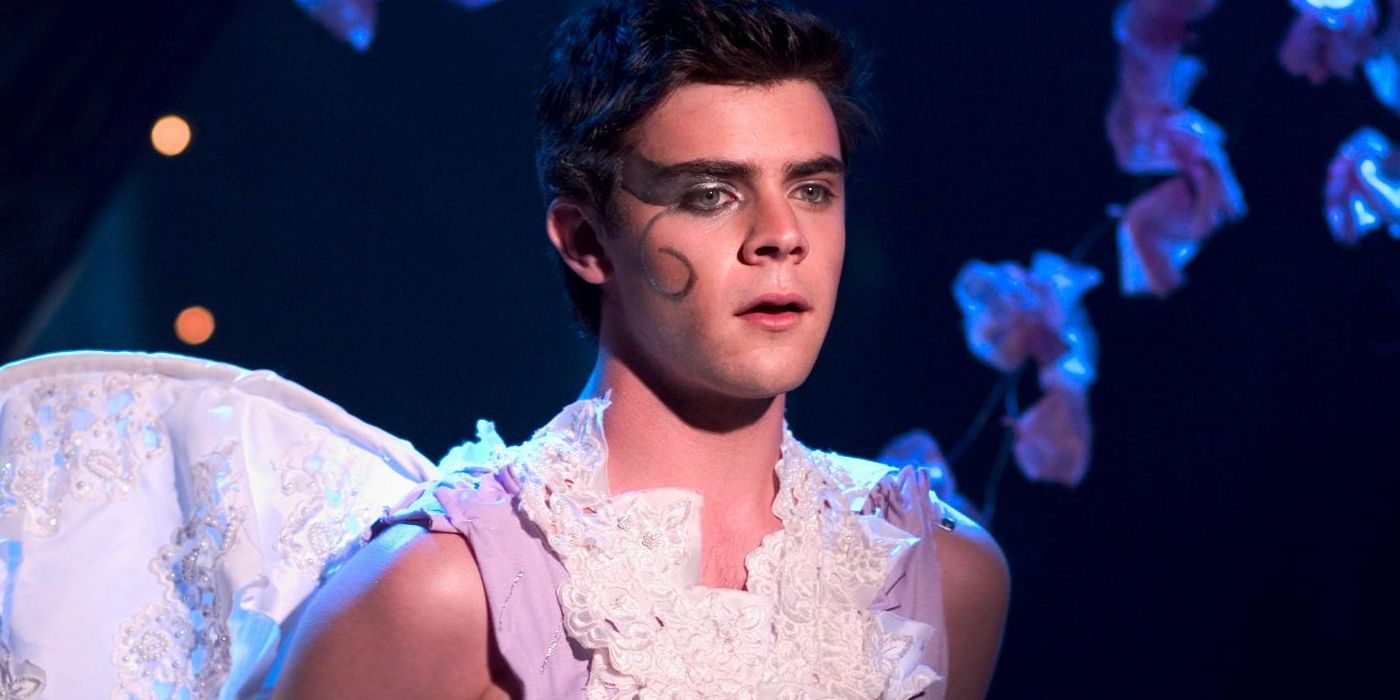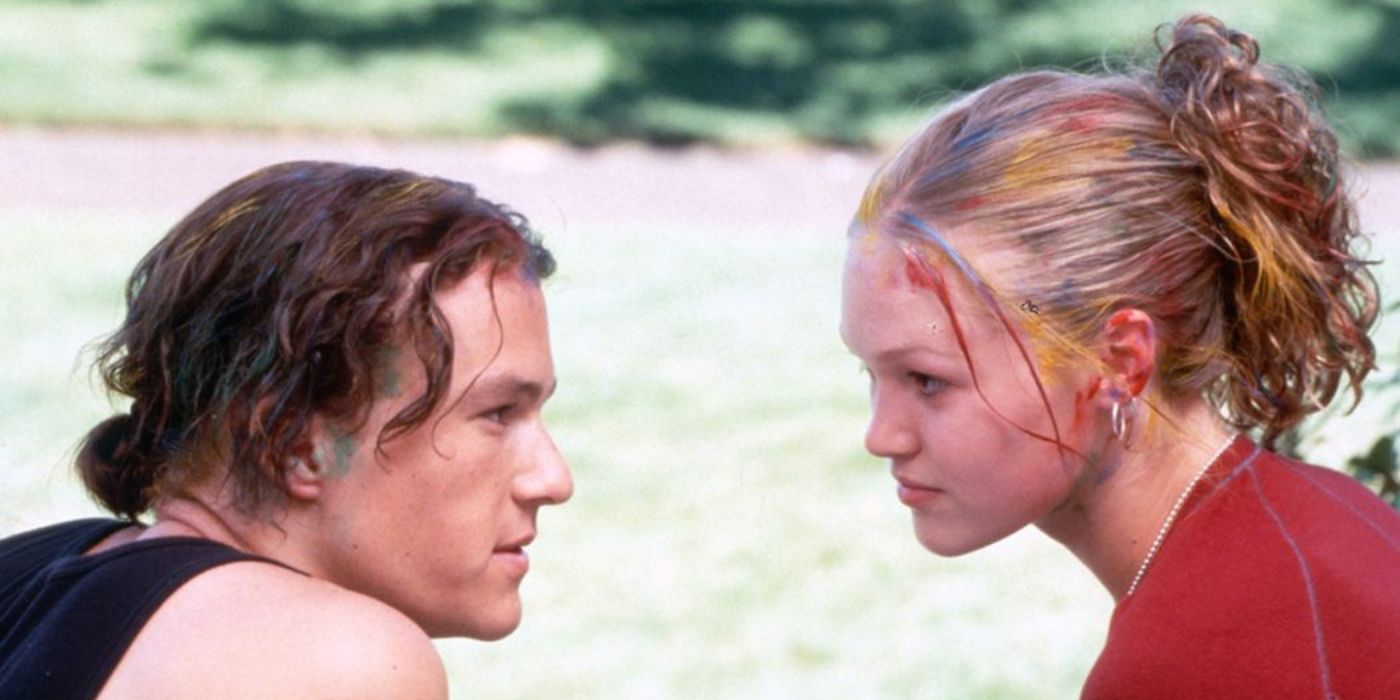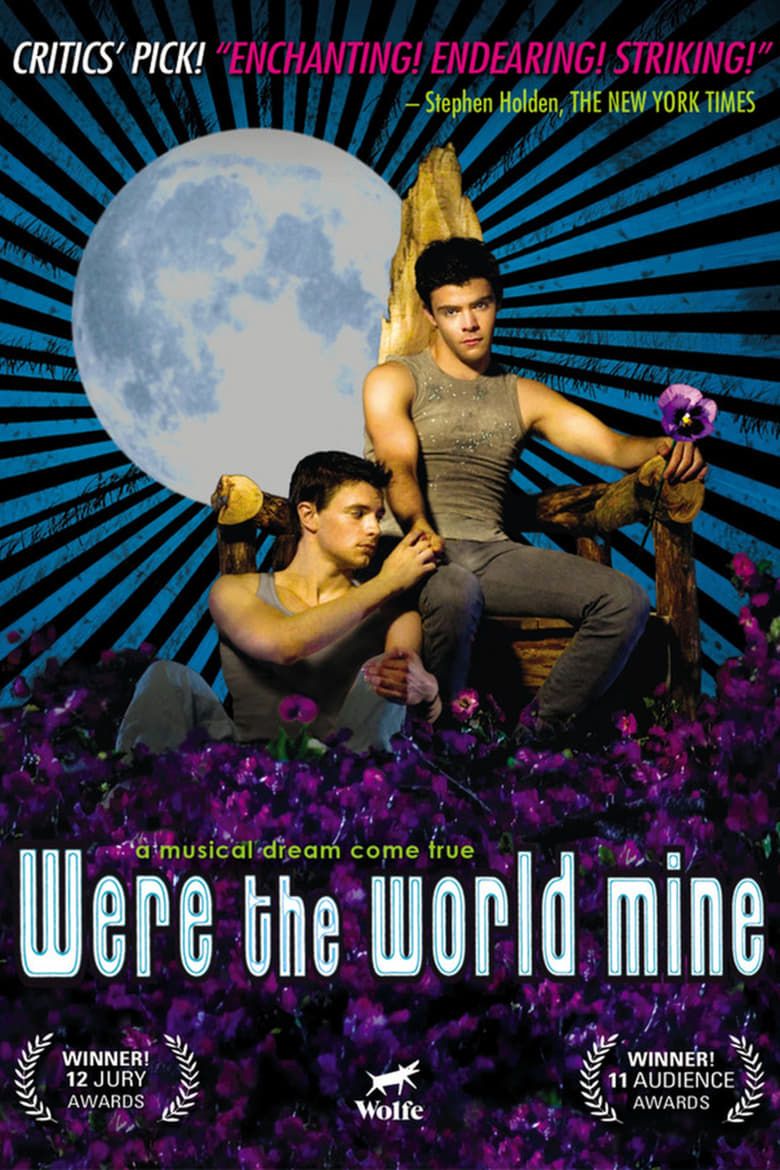What Is ‘Were the World Mine’ About?
A full-length feature version of Gustafson's 2003 short film, Fairies, Were the World Mine centers around Timothy (Tanner Cohen), a gay high school student attending the private, all-boys Morgan Hill Academy, where he is bullied relentlessly for his sexuality. Despite the support of best friends Frankie (Zelda Williams) and Max (Ricky Goldman), Timothy's personal life is also bogged down by a fractious relationship with his mother, Donna (Judy McClane), who herself struggles to support her son while financially reeling from a recent separation from his intolerant father. Coupled with a seemingly hopeless crush on the captain of Morgan Hill's rugby team, Jonathon (Nathaniel David Becker), Were the World Mine subsequently provides Timothy with a bleak portrait of early 2000s angst, making the film particularly poignant for viewers who experienced growing up queer at the start of the century.
Everything changes for the lovestruck boy, however, when Timothy is convinced to try out for Morgan Hill's production of Shakespeare's A Midsummer Night's Dream by his emphatic English and drama teacher, Ms. Tebbit (Wendy Robie). After members of the rugby team paint a slur on Timothy's locker, he uncovers the power to brew Puck's love potion in real life while practicing his lines. Timothy then uses this power to upend the conservative conventions of his daily life, spraying Jonathon, the rugby team, and countless other authority figures around Morgan Hill with a concoction that sees them fall madly in love with the first person they see. Soon, queer pairings begin popping up everywhere where Timothy was once alone, and the joy of watching this reversal makes Gustafson's film a refreshing piece of wish fulfillment for a genre that often goes hand in hand with heartbreak.
The music of Were the World Mine similarly bolsters the underlying passions that lie at the heart of Timothy's story. There's a raw, delicate quality to Timothy's voice that reinforces his adolescence, and Were The World Mine's ending similarly reaches for that mix of a grunge and hard rock aesthetic popular in the late 90s and early 2000s. Even before Timothy and Jonathon break out into full-fledged romantic ballads, Gustafson teases his film's score in the background of Timothy's daydreams to emphasize his longing. When Were the World Mine does embrace its full musicality, Gustafson further heightens the movie's romantic tension by having the soundtrack's lyrics go hand-in-hand with Shakespeare's dialogue, though this inspiration is far from the only way Were the World Mine takes advantage of The Bard's wordplay.
Gustafson's use of A Midsummer Night's Dream is particularly unique among Hollywood's long history of Shakespeare adaptations. Typically, films looking to take inspiration from the celebrated English poet can be classified in one of two ways. On one hand, there are plenty of celebrated films that rightfully earn praise for adapting Shakespeare's plays directly, such as Kenneth Branagh's opulent version of Hamlet, while other movies simply take inspiration from Shakespeare in creating their plots, like West Side Story. In comparison, Were the World Mine sticks out for hovering somewhere in between both styles, partially adapting the narrative trajectory of A Midsummer Night's Dream without burdening itself with a faithful retelling updated for a contemporary audience.
By combining Shakespeare's social upheaval with Timothy's relatable queer adolescence, Were the World Mine comes together as a delightful exercise in the subversive power of queer love. As is the case with most aging LGBTQ+ films, Gustafson's film is not without its shortcomings, and the movie could do more to interrogate the prejudice of Timothy's mother and the people of Morgan Hill. That said, it's also possible that modern viewers will find the film's unflinching look at high school homophobia oddly comforting, as the movie is unafraid of balancing a level of harassment absent from recent LGBTQ+ dramas with a commensurate amount of queer joy. The film's ending is equally endearing and bittersweet, with Timothy ultimately forced to choose between preserving the free will of Morgan Hill and chancing the uncertainty of Jonathon's true feelings, but Were the World Mine is nevertheless a dark delight for daring to imagine a world as hopeful as a fleeting dream.
Were the World Mine
Release Date
June 24, 2008
Runtime
97 minutes
Director
Tom Gustafson
Writers
Cory Krueckeberg
Producers
Gill Holland, Peter Sterling, Reid Williams, Jon Sechrist, Richard Zanetti

 Image via SPEAKproductions
Image via SPEAKproductions








 English (US) ·
English (US) ·